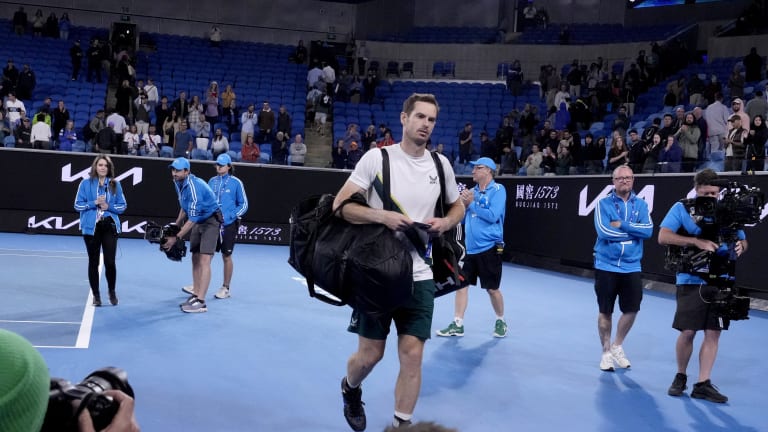The Business of Tennis
ATP and WTA introduce new scheduling guidelines to reduce late finishes
By Jan 09, 2024The Business of Tennis
Carlos Alcaraz surpasses 40 million dollars in career prize money after winning Monte Carlo
By Apr 14, 2025The Business of Tennis
University of Virginia men’s tennis team secures permanent 'in perpetuity' funding
By Apr 13, 2025The Business of Tennis
Charleston Open will pay women same as men starting in 2026
By Apr 06, 2025The Business of Tennis
Top ATP, WTA players pen letter to Grand Slams seeking greater share of revenue
By Apr 04, 2025The Business of Tennis
Chairman Andrea Gaudenzi will take over as interim ATP CEO after Massimo Calvelli departs
By Apr 04, 2025The Business of Tennis
Novak Djokovic, Coco Gauff and other players ask Grand Slam tournaments for more money and more say
By Apr 03, 2025The Business of Tennis
Wimbledon plans to upgrade the fans' favorite hill for 150th anniversary
By Apr 03, 2025The Business of Tennis
Tennis star Coco Gauff launches own management firm
By Apr 03, 2025The Business of Tennis
Carlos Alcaraz doesn't support the lawsuit from tennis players' group Novak Djokovic founded
By Mar 19, 2025The Business of Tennis
ATP and WTA introduce new scheduling guidelines to reduce late finishes
The two tours also announced that they are conducting "a strategic review" to try to add more consistency to the kinds of tennis balls used starting in 2025.
Published Jan 09, 2024
Advertising

Who could forget last year's Australian Open battle between Andy Murray and Thanasi Kokkinakis that finished at 4:15AM?
© Copyright 2023 The Associated Press. All rights reserved